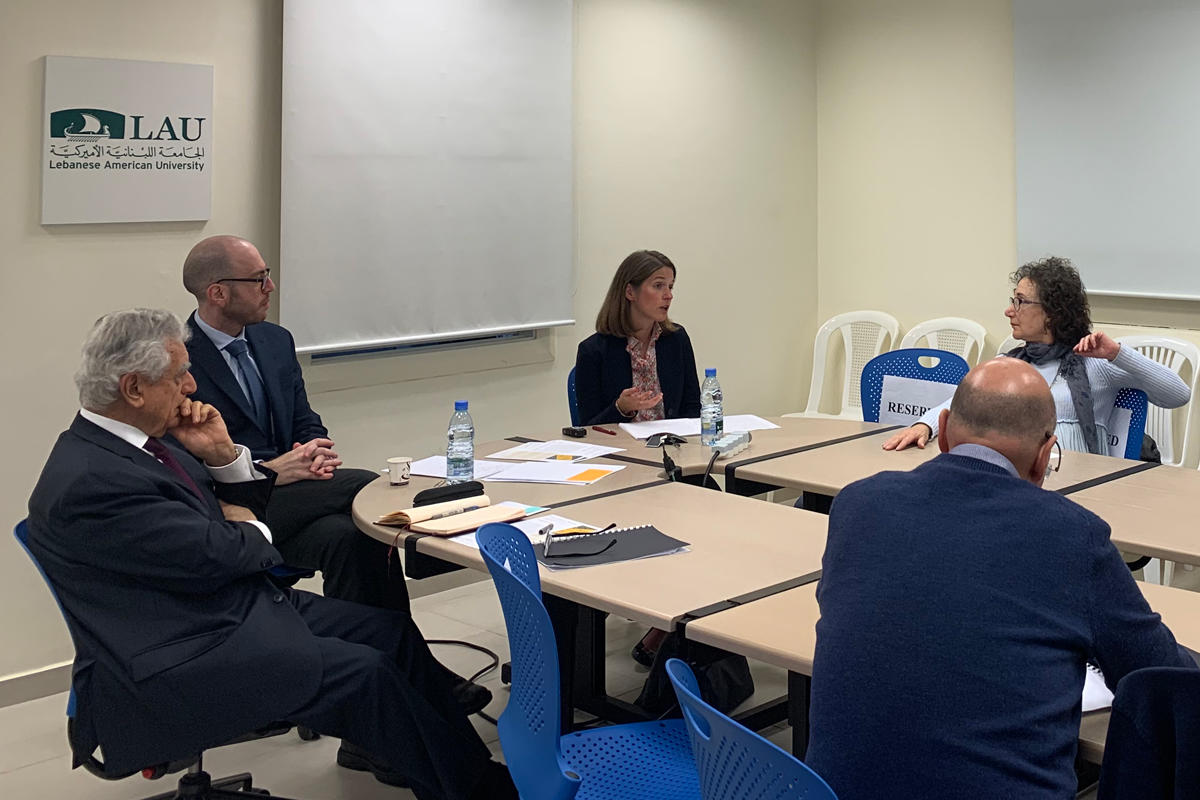How Important Are Human Rights?
Professor and author Sarah B. Snyder talks about how US foreign policy was shaped by activism.
How can countries balance respect for human rights while preserving state security? How did activism in the United States institutionalize human rights as part of foreign policy? And how does the past compare to the present in today’s turbulent US political landscape?
Those were some of the questions addressed by Dr. Sarah B. Snyder, a historian of US foreign relations and associate professor at the American University in Washington, DC, in a lecture hosted by LAU’s Department of Social Sciences.
The lecture, organized and moderated by Professor of Political Science and International Affairs Dr. Jeffrey G. Karam, also focused on Snyder’s recent book From Selma to Moscow: How Human Rights Activists Transformed U.S. Foreign Policy.
The event drew an audience that included LAU President Joseph G. Jabbra and Vice President for Student Development and Enrollment Management Elise Salem, as well as interested students, faculty and staff.
Dr. Karam invited Dr. Snyder as part of his push to bring in scholars from North America, Europe, and elsewhere in the Middle East to “bridge the gap between the global North and global South through scholarly conversations and intellectual engagement.”
“By providing distinguished scholars and practitioners a platform at LAU, our students can deepen their knowledge of significant scholarly work, learn about and of different methodologies, and benefit from engaging with scholars who are producing knowledge on pressing ideas,” he added.
Dr. Snyder began her talk with a quote by former Secretary of State Rex Tillerson in which he said that the promotion of social values would only put “obstacles to advancing our national security interests as well as our economic interest.”
This, she noted, was in line with the broader Trump administration’s disregard for human rights, which she said, “marks a return to an earlier transnational approach.”
This was not always the case in US foreign policy. Dr. Snyder identifies transnational connections and social movements in the 1960s as the “foundation of human rights activism in the US,” as opposed to widespread scholarly literature focusing on the 1970s as the period of “emerging concern of human rights abuses, whether as a result of Jimmy Carter’s election, guilt over the war in Vietnam or failed political utopias.”
By the mid-1970s Congress had passed a series of reforms ensuring that human rights “became and remained a component of foreign policy.” Later, presidents such as Jimmy Carter, Ronald Reagan and their successors made “calculated” decisions about human rights.
While there was always debate as to the best means of advancing values, there had never previously been an argument that “human rights had no place in US foreign policy,” said Dr. Snyder.
The book, she said, “illuminates how American human rights activism culminated in these reforms.”
From Selma to Moscow is based on in-depth archival research and analyzes the American response to repression in the former Soviet Union, Southern Rhodesia (now Zimbabwe), South Korea, Greece and Chile.
Dr. Snyder’s selection of countries was based on her extensive examination of records of “the Department of State, materials from the relevant presidential libraries, as well as the papers of influential diplomats, members of Congress and human rights organizations.” She also gained access to archives of the British and Chilean governments, the United Nations, and key human rights organizations, and interviewed activists and former members of Congress on their human rights work.
Dr. Karam is also a strong proponent of searching archives for research purposes. He pushes students to seek primary sources in their research and to read any document accessible to separate fact from rumor. Indeed, he organized a workshop in fall 2018 during which students were trained on how to sift through declassified US intelligence and diplomatic records.
With lectures such as that by Dr. Snyder, Dr. Karam said, LAU is ensuring that students “are becoming global and informed citizens.” In turn, he added, they will be able to build an active and informed society.
